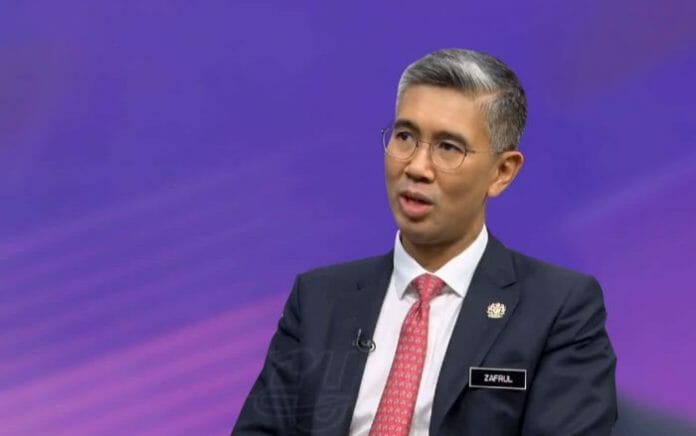Urging the private and government sectors to tackle climate crises head-on, Finance Minister Tengku Zafrul Abdul Aziz says climate crises have grown beyond the choices that individuals make – worsened by human activities which have damaged the planet at an alarming rate.
He adds that throughout those periods, humanity did very little to mitigate the impact of industrialisation to the planet. The outcome is the constant pollution of our air, land and sea.
“Almost every other week, many incidences of climate-related disasters can be seen– from flash floods in several states, followed by the recent tragedy in Penampang, to the landslide in Kemensah Heights.
“All these have claimed lives and displaced many from their homes as well as disrupted livelihoods.
Experts estimate that without any mitigating policies, the cumulative cost of climate change to the country stands at an average of over 400 billion ringgit a year, over a period of 100 years beginning 2010,” he says in his opening address at The Cooler Earth Summit 2021 organised by CIMB.
“The progress we have seen in the areas of innovation, development, and commercialisation of sustainable technologies during the pandemic, can, and should be further embraced in our daily lives. This is especially important as previous waves of rapid industrialisation have shown numerous negative consequences,” he says.
He mentioned an IPCC report which described the current climate change preparedness as “a code red for humanity”.
While the world has been reeling from COVID-19 pandemic, climate change remains as an equally, if not more, severe threat in the near future. This was also reaffirmed by the Director-General of WHO, who mentioned that “the risks posed by climate change could overshadow those of any single disease.”
“After all, climate change does not have the equivalent of a vaccine as a fix.”
Tengku Zafrul stresses that transitioning to a climate-resilient economy is no longer an aspiration, but an urgent requirement to avoid irreversible damage to the planet and society, he asserts that Malaysia needs to transform systems and policies towards more sustainability.
“We must transform our economic and financial systems, as well as sectors pertaining to our food, water and energy in a manner that is sustainable, inclusive, just and fair. We need to start pricing in carbon emissions and realign more incentives towards clean energy and the circular economy, ending the free ride that industrial polluters have had over the years.
“And the good news is that climate change-related goals are not only achievable but also make for sound economic policy. According to the IMF, the emphasis on green investments, such as renewables, low carbon mobility and energy efficiency offer a huge opportunity – potentially raising global GDP by approximately 2 per cent, and creating millions of new jobs throughout this decade.
He adds that the Government has made meaningful progress both at the global and domestic fronts since the signing of the Paris Agreement by increasing unconditional Nationally Determined Contributions (or NDC) to cut the intensity of GHG emissions from 35 to 45 per cent of GDP by 2030 compared to 2005 levels.
Secondly, he said Malaysia is now part of the Coalition of Finance Ministers for Climate Action (or CFMCA). Thirdly, the nation has pledged to the Helsinki Principles in promoting national climate action through fiscal policy and the use of public finance endorsed by the CFMCA.
He says the six key priorities under the Malaysian Climate Action Council (MyCAC) will be further accelerated, to include implementation of the Low Carbon Mobility Development Plan, developing a National Low Carbon City Masterplan, and more recently, the Government has agreed to develop a Voluntary Carbon Market Guidelines and a Domestic Emission Trading Scheme. This will be led by the Environment and Water Ministry (or KASA), in collaboration with the Ministry of Finance, Bursa Malaysia and other key stakeholders.









